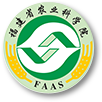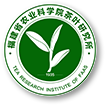Abstract:
The Regional Comprehensive Economic Partnership (RCEP) free trade agreement became effective in 2022. It presents an exciting opportunity for multilateral economic cooperation among the membership countries. Under the agreement, the Association of Southeast Asian Nations (ASEAN) will gradually eliminate tariffs on over 90% of merchandise traded between them over the coming 36 years. Some stipulations in the agreement, such as the Cumulative Rules of Origin, set a framework that is to greatly promote the regional import/export acitvities and facilitate the economic integration in the region. Malaysia and some ASEAN countries have already been important partners with China on tea commerce for many years. Using the tea exportation from China to Malaysia as example, this article analyzes the effects the RCEP ruling might bring about on the future development between the two nations. Some approaches and practical suggestions for Guizhou tea industry, as a latecomer in the trade, to capitalize the opportunity are discussed.




 下载:
下载: